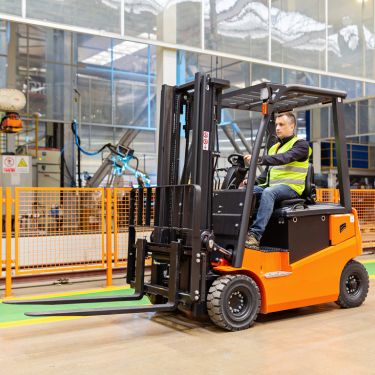
Forklifts are the workhorses of warehouse operations, lifting and moving heavy loads with ease. However, like any piece of machinery, they require consistent care and maintenance to ensure they remain in optimal working condition.
Discover some essential maintenance tips for forklift operators that ensure the longevity and efficiency of your prized warehouse equipment. Continue reading to learn the secrets of forklift care and keep your operations running smoothly.
Perform Regular Preventative Inspections
The adage “an ounce of prevention is worth a pound of cure” could not be truer regarding forklift maintenance. Regularly inspecting your equipment allows you to catch potential issues before they become costly problems. Check key components like the tires, brakes, mast, forks, and engine for any signs of wear or malfunction. To create a schedule for inspections and maintenance, follow the manufacturer’s recommendations along with your experience and intuition.
Prioritize Lubrication and Fluids
A well-lubricated forklift is a happy forklift. Be sure to frequently check the levels of hydraulic fluid, engine oil, and coolant to avoid dry or overheated components. Regularly greasing all moving parts will also reduce friction and extend the lifespan of your forklift. Make it a habit to check fluid levels and the condition of all moving parts during preventative inspections.
Keep the Tires in Top Shape
Forklift tires are an essential element of warehouse safety and forklift stability. Watch for signs of wear, flat spots, or low tire pressure and address these issues promptly. If your forklift uses pneumatic tires, check for any leaks or damage, and don’t hesitate to replace worn-out or damaged tires to maintain peak performance.
Stock Up on Spare Parts
A well-stocked inventory of quality spare parts is a must for any forklift operator. This will save you from the frustration of downtime due to unexpected breakdowns and allow you to perform proactive maintenance with minimal disruption. There are many spare forklift parts you should have on hand, such as filters, belts, and seals. Additionally, make sure you invest in quality spare parts from reputable sources to ensure the best performance.
Train Your Forklift Operators Well
The importance of proper operator training cannot be overstated. A skilled operator can minimize wear and tear on your forklift through smooth and precise maneuvers. Be sure to provide regular training on safe operation, basic maintenance, and troubleshooting. This will empower operators to spot potential issues before they become bigger problems, keeping your forklifts in tip-top shape.
It is vital for warehouse managers and forklift operators to remember these essential maintenance tips. By keeping these suggestions in mind, you can extend your forklift’s lifespan and reduce potential downtime due to broken equipment.




















